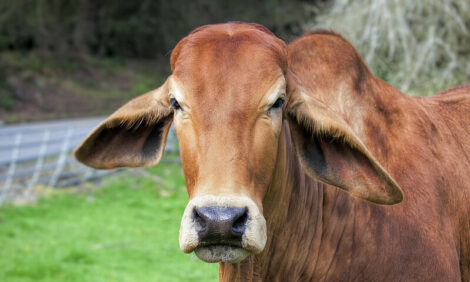



Greenpeace alleges Brazil meatpackers purchased cattle linked to deforestation
In a report published on 4 June, environmental advocacy group Greenpeace alleges that since 2018, Brazilian meatpackers Marfrig, Minerva and JBS SA purchased thousands of cattle linked to Amazon deforestation.Reuters reports that Greenpeace’s publication provides a window into cattle laundering, where steer raised on illegally deforested land are moved between farms to hide their origins.
Cattle ranching is a major driver of Amazon deforestation. Deforestation rates in Brazil surged to an 11-year high in 2019. Livestock pastures make up nearly 60 percent of the deforested area of the Amazon, according to data published by space research agency INPE in 2016.
The report provides a window into so-called cattle laundering, in which steer raised on illegally deforested land are moved between farms to obscure their origins.
The three meatpackers reportedly bought cattle from a farm called Barra Mansa in Mato Grosso state between January 2018 and July 2019, with JBS buying at least 6,000 cows, Minerva buying at least 2,000 and Marfrig buying roughly 300, according to Greenpeace's investigation.
During that period, at least 4,000 cattle were moved to Barra Mansa from a nearby ranch, called Paredao, according to Greenpeace. Paredao is illegally located inside a state park that has been largely deforested, according to land registry records and satellite deforestation data. Public records show the farms share an owner, Marcos Antonio Assi Tozzatti.
Listed phone numbers for a company linked to one of the farms and registered to Tozzatti were disconnected.
Asked about the allegations, JBS, Minerva and Marfrig in statements to Reuters reaffirmed commitments made since 2009 not to buy cattle from illegally deforested areas or farms under environmental embargo.
The companies said Brazil's cattle tracking system made it hard to scrutinise "indirect suppliers," which can be farms in bad standing that sell cattle to those in good standing.
JBS said Barra Mansa is compliant with the company's responsible procurement rules and that Paredao has never been listed as a JBS livestock supplier.
Minerva said it has blocked the Paredao farm from its system since 2018, but Barra Mansa is one of its licensed suppliers and it would now be investigated for any irregularities.
Marfrig said it had purchased 180 cattle in the period in question from Tozzatti and Barra Mansa farm, which complies with all of the company's standards. Marfrig said it was not familiar with the Paredao farm.
Reuters reviewed government records corroborating the Greenpeace report and documented livestock transfers, including dozens of cattle sent from Barra Mansa to the companies' slaughterhouses, but was not able to verify all of the transactions involved.
The report details how the three meatpacking plants exported about 53,256 tonnes of meat valued at $267 million in periods roughly corresponding to the cattle purchases from Barra Mansa. Hong Kong and the United Arab Emirates were the top consumers, while about 15 percent of their exports in the period went to Europe.
A lack of end-to-end tracking in Brazil's cattle market makes it difficult for the buyers to know for certain if beef is linked to deforestation, according to Greenpeace.
"No slaughterhouse or supermarket in Brazil that currently buys animals from the Amazon can assure that all cattle produced and purchased in the Brazilian Amazon is completely free from deforestation," the Greenpeace report said.
Read more about this story on Reuters.


